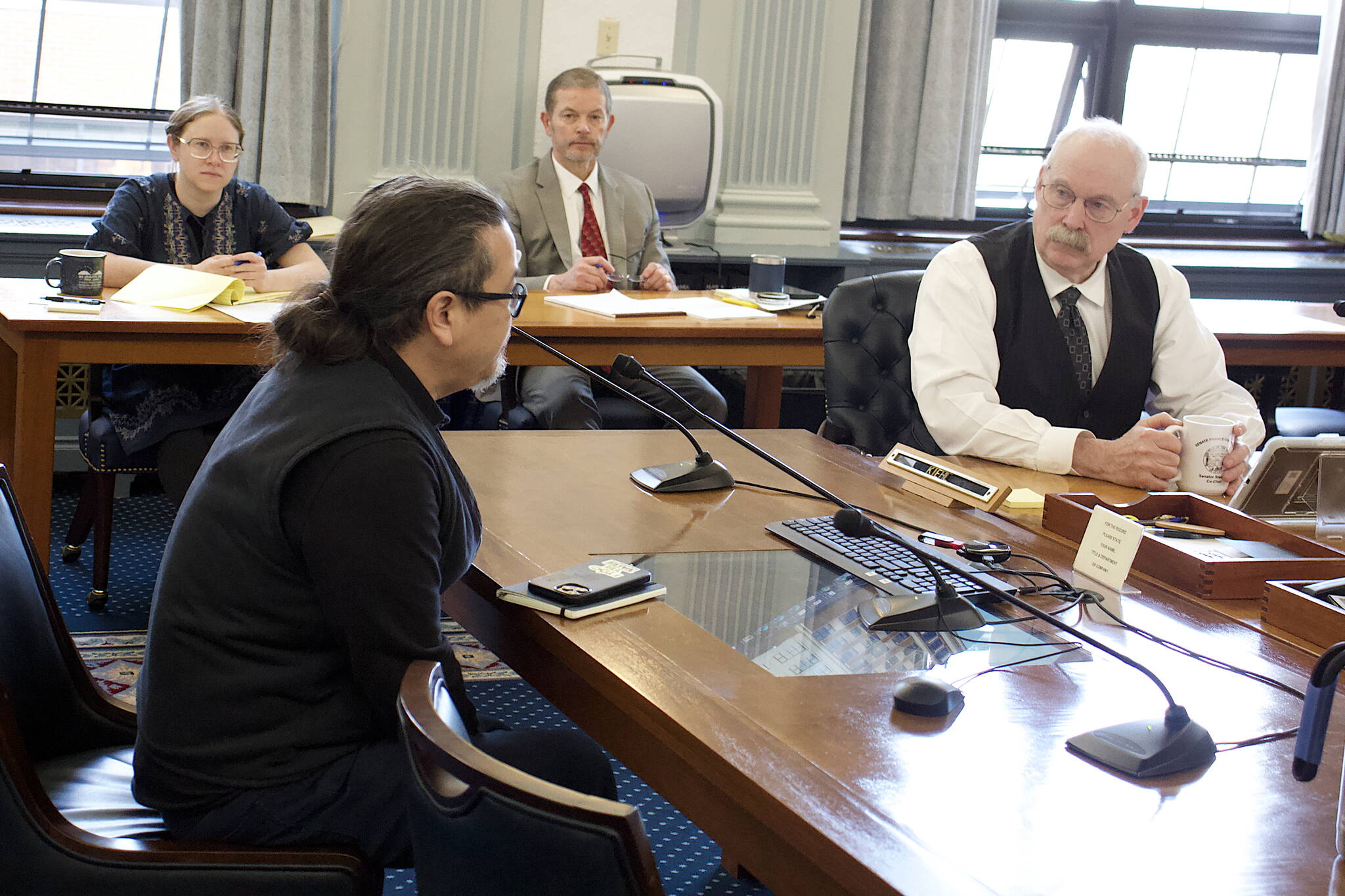A revised Senate budget with a $1,300 Permanent Fund dividend and $680 one-time increase in per-student education funding — which now appears to be the highest possible amount, compared to previous proposals of $1,000 or more — was adopted Wednesday by the Senate Finance Committee.
The budget of about $6.2 billion contains a $90 million surplus, which means it would not need a three-fourths vote of the Legislature to access reserve funds and could absorb a slight drop in oil prices.
In contrast, the Republican-led House majority is proposing PFDs of about $2,700 and a one-time per-student education increase of about $680, resulting in a deficit of about $600 million. Gov. Mike Dunleavy’s proposed budget includes a PFD of about $3,500 and no education funding increase, resulting in a deficit of more than $900 billion.
“This is a responsible budget that considers the services Alaskans expect while living within our revenue projections,” said Sen. Bert Stedman, a Sitka Republican who co-chairs the Finance Committee, in a prepared statement issued Wednesday afternoon. “The constitution mandates us to deliver to the governor a balanced budget. Within the confines of the spring revenue forecast and not dipping into our perilously low reserves, we balance the budget with the potential opportunity of revisiting it next January to deal with further maintenance and capital needs.”
The finance committee also boosted its initial capital improvements budget of about $191 million — the bare minimum needed to qualify for federal funds approved for related projects in Alaska — by about $166 million, putting the total $357 million plan above Dunleavy’s $304 million capital budget. In a news release by the committee, it stated priorities included $30 million for major school maintenance and $32 million for University of Alaska projects.
“We have limited resources to work with, making this capital budget one of the smallest we have seen in a long time,” said Sen. Lyman Hoffman, a Bethel Democrat and another co-chair of the committee, adding “we’ve chosen not to do any individual district projects, but are concentrating on shoring up statewide existing infrastructure.”
Revisions to the Senate’s budget also contain changes to smaller items that got public attention during a hearing last week:
Removal of about $5 million to allow the state to take over wetlands development permitting from the federal government.
Adding $15 million in child care block grants to raise wages for employees. The funding has been a high-profile issue for providers who say it could raise pay from an average of about $14.50 per hour to nearly $20 an hour.
An additional $15 million to match $15 million in federal funds to establish a new Medicaid funding mechanism for home and community based services, and personal care attendants.
Deletes $209,000 for a state attorney hired specifically to help residents pursue legal action for violations of “parents rights” policies related to public schools, such as a bill from Dunleavy that included provisions such as parental permission for their children to take sex education classes or be referred to by a different gender.
The current budgets from the Senate, House and governor are all based on the spring revenue forecast that expects oil prices to average $73 a barrel for the fiscal year beginning July 1. Prices have been above $80 a barrel in recent weeks due to OPEC cutting production in an intentional effort to increase prices to about $90, and Stedman has said previously lawmakers could meet again after May 17 when the session is scheduled to adjourn to discuss the state’s spending plan if a significant change in expected revenues is likely.
Several bills to boost revenues in the form of taxes have also been increased and Dunleavy told lawmakers last week he intends to introduce some form of statewide sales tax in the near future. A House bill with a 2% sales tax with no exemptions might generate about $740 million a year, according to an analysis by the Tax Foundation.
The Senate Finance Committee is scheduled to finalize its proposed operating and capital budgets this week so they can be debated on the floor next week. After that, a conference committee of House and Senate members will draft a final budget that resolves differences between the two versions for a final vote by both chambers.
If the compromise budget contains a deficit, a three-fourths vote of both the House and Senate is needed to access the Constitutional Budget Reserve Fund, which currently has about $2.4 billion and has been used to cover deficits in many past years. The House majority would need to make concessions to the minority caucus to get enough votes and, while the Senate has a 17-member bipartisan majority and thus wouldn’t likely face that issues, Stedman and other finance committee leaders have said repeatedly a spending plan that continues to incur deficits is unacceptable.
For that reason the Senate budget contains a much smaller PFD than the other two budgets. In addition, it states if revenues exceed the spring forecast the first billion dollars will be deposited in the budget reserve, and if there’s more revenue up to $1.1 billion of will be deposited into the Public Education Fund to forward fund education.
• Contact reporter Mark Sabbatini at mark.sabbatini@juneauempire.com

